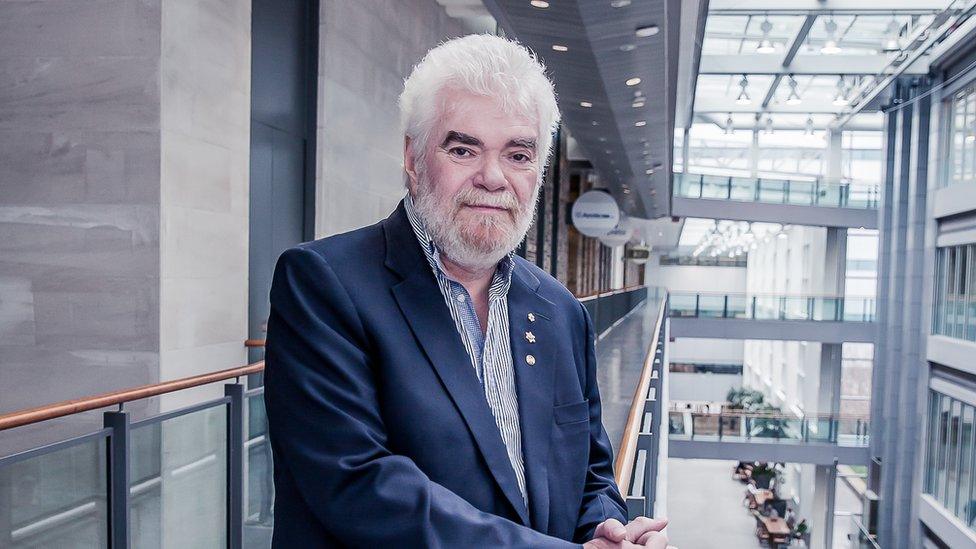World-renowned HIV researcher Frank Plummer, 67, dies
- Published

Dr Frank Plummer is widely recognised for his contributions to HIV and Aids research
Frank Plummer, a "scientific maverick" whose research had a profound impact on global public health, has died.
The world-renowned microbiologist was most widely recognised for his ground-breaking work on understanding HIV transmission.
Dr Plummer, 67, was also recognised for leadership roles in the Sars, H1N1 flu and Ebola epidemics.
He had recently spoken publicly about undergoing experimental brain surgery to treat alcoholism.
The researcher died while in Kenya to celebrate the 40th anniversary of a research collaboration between the University of Manitoba and University of Nairobi, reportedly of a heart attack.
"Today we lost a giant," said Dr Brian Postl, a former classmate of Dr Plummer's at the University of Manitoba.
"Back in medical school, Frank was clearly a creative thinker and amongst our accomplished MD Class of 1976, distinguished himself as a true leader and visionary."
Allow X content?
This article contains content provided by X. We ask for your permission before anything is loaded, as they may be using cookies and other technologies. You may want to read X’s cookie policy, external and privacy policy, external before accepting. To view this content choose ‘accept and continue’.

Dr Digvir Jayas, of the University of Manitoba, said Dr Plummer's "contributions have had a cumulative global impact on saving the lives of tens of thousands of people for decades and also improving the lives of HIV-positive people around the world".
Among his findings was that HIV could be transmitted between mothers and babies through breast milk. He also did work with Nairobi sex workers, showing that a small percentage of them showed an immunity to the disease.
"Frank is one of Canada's top scientists and his impact and legacy has reached all around the world," his former student, Dr Keith Fowke, told the BBC via email.
"The world is a far better place for the contributions Frank made and he will be dearly missed by all of us."
Just over a year ago, Dr Plummer had chosen to participate in a surgical trial for experimental brain surgery to treat his alcoholism and had spoken about the positive results.
The procedure, called deep brain stimulation (DBS), was being conducted in North America for the first time for otherwise untreatable alcohol addiction at Toronto's Sunnybrook Hospital.
Dr Plummer said the surgery had given him a new lease on life after a series of health problems had forced him to confront his battle with alcohol addiction.
He had returned to HIV research with the hopes of developing a vaccine for the disease and had begun writing a book about his experience in Kenya working on the frontlines of the Aids crisis.
When he returned from working in Kenya, he had served a senior scientific advisor of the Public Health Agency of Canada and as scientific director general of the National Microbiology Laboratory in Winnipeg, one of a handful of laboratories in the world with the capacity to work with highly pathogenic viruses like Ebola.
He received numerous accolades for his work, including receiving the Order of Canada, one of the country's highest honours, and the Canada Gairdner Wightman Award, which recognises scientists whose work has had a significant impact on health outcomes in the developing world.